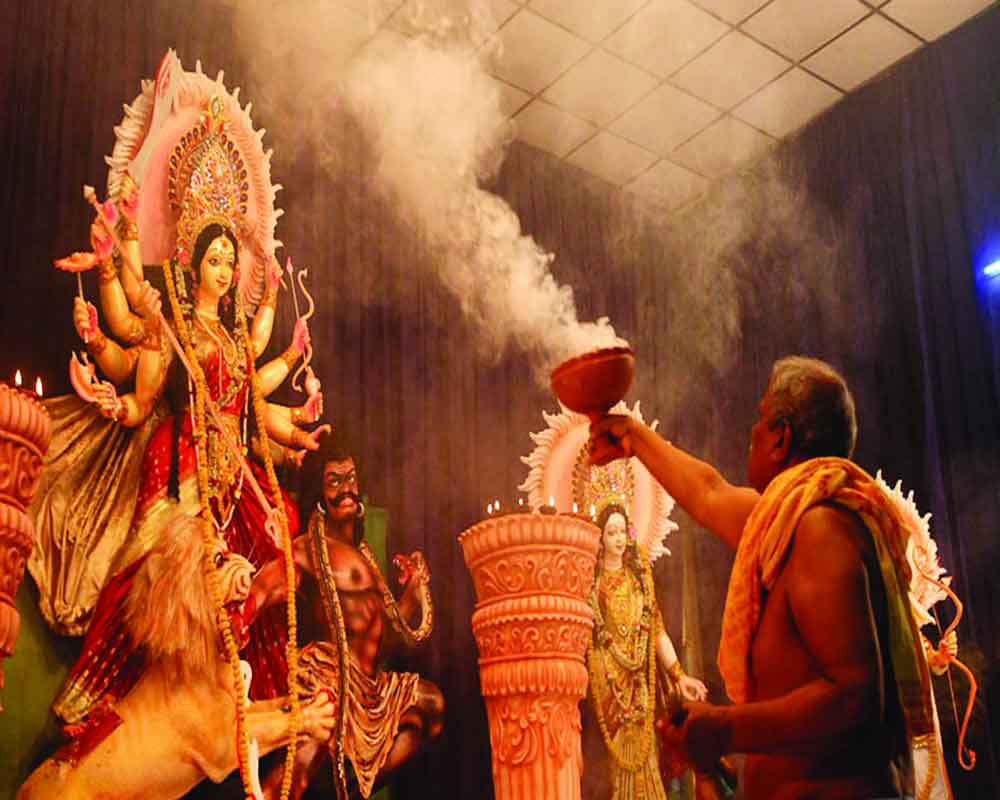Underneath pluralism lies a nuanced interplay of linguistic identities, particularly evident during the electoral season
India often claims to be a pluralistic society proudly calls itself a unity in diversity. No doubt, Hindu faith provides us with a strong shaft to hold the country together. Nevertheless, there is an occasional deviation in our dealing with some of our linguistic brethren. They show prominently up say at election time.
West Bengal is dominantly a Hindu state like any other. But it is what may be called a shakta worshipping people. Male deities are not sought after. Although Krishna is acceptable, yet more by the lower castes who were attracted to Chaitanya Mahaprabhu. Otherwise, the popular deities are Durga and Mahakali; more the latter. This translates into domestic life into often a father addressing his daughter affectionately Maa or even a stranger lady who is to be addressed respectfully.
Didi is the next best to Maa. Another unusual practice to be witnessed at a wedding reception called popularly bohubhat, a party given by the groom's family after the wedding. The odd lady might well find and instinctively remark 'how handsome is the groom?' Across India it is the bride whose looks are commented upon, not the groom's, but here is where West Bengal is different. The Bengali super-performance is their language; neither religion, nor the culture. A non-Bengali speaking it as well as a native would touch their hearts, equally, if it was appreciated. If the language is spoken well by an outsider, it would be appreciated as 'parishkar' (clear). An even better performance would evoke the compliment of 'sundar' (beautiful).
In sharp contrast, say Gujarat or Rajasthan would not be sensitive as Bengal would be over the issue of language. In a sharp difference, the Tamil could be flattered if the outsider speaks the language authentically. It is likely to be taken as an outsider having taken all the trouble to identify himself culturally with their ancient land and culture.
To the Maharashtrian, his Marathi is very important. For example, in the composite Bombay State, the Maharashtrians were in an overwhelming majority and yet they agitated-with and without violence-to get a Samyukta Maharashtra, distinct from Gujarat, which was the other component of the state. It is not that they disliked the Gujaratis; there are millions of them in Mumbai, and the two communities co-exist happily.
All in all, every community, whether linguistic or otherwise, is likely to be proud of it's identify. At least for those who wish to get elected and govern, they should take for granted that identify is important to most and should be prepared to appear to pamper them. The reason is that in the event some adverse incident takes place, it could well take a turn and become an issue of identity, whose flames would then be difficult to douse. By and large, India has managed its many languages and pluralities competently.
However, with the rapidly developing economy and the resultant prosperity expected in due course, one cannot rule out the desire for relative freedom, and the demand for greater regional authority. The current government has been wise not to touch Article 356 of the Constitution and dismiss any state government, an act that is viewed as an anti-federal action. Other factors have also helped, such as the presence of minorities, which often wave the flag of polarization, in turn, leaving no choice for the majority other than a strident march towards unity. UP, which was the torch-bearer for Hindi, remained comparatively dormant, as its problems for decades were economic rather than political. Another factor that worked in India's favour was the awareness that Pakistan split into two in 1971 merely on the issue of its national language Urdu. Although much later, the traumatic breakup of the Soviet Union into sixteen republics sent shivers of fear down the spires of many a country. More secession followed in Europe after 1991. There is no danger of this nature on the horizon of India at present. However, precaution is always a virtue.
In today's world of increasing technology, a small state is a handicapped polity. Even in older times, the defence of a small state was perpetually problematic. There are a few such states in India's neighbourhood and we can appreciate their tensions. In the event there comes a phase of financial shortage, borrowing would pose a problem. What and how much can small state pledge as a collateral security?
The problem of defence can be answered by joining an alliance.
A number of European countries have linked themselves to the North Atlantic Treaty Organisation (NATO). But there is a price to pay for an alliance. One's freedom to conduct one's foreign policy shrinks simultaneously. Even larger states must ensure that they are well armed, not only for themselves but also for also for friendly nations. For examples, go back to the 1860s and the American Civil War when the northern and southern states fought for years. If the U.S.A. had not remained together and united, there would have been no country to save Europe from the Nazis in WWII, and also WWI between 1914-18.
National political parties should therefore have units of Young people, men and women, who can keep tract of regional peculiarities and systematically learn and practise them so that communication with the regions becomes more effective. No one should as if he or she is outside India or not wanted!
(The writer is a well-known columnist, an author and a former member of the Rajya Sabha. The views expressed are personal)


























